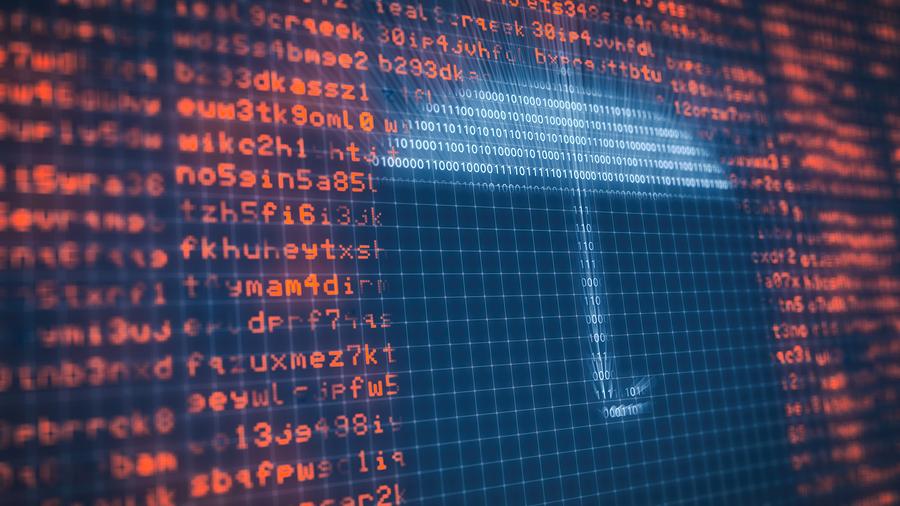Data Destruction Solutions: A Crucial Element in Your Cyber Security Strategy
Data Destruction Solutions: A Crucial Element in Your Cyber Security Strategy
Blog Article
The Importance of Effective Information Destruction Practices in Shielding Sensitive Information and Ensuring Computer System Protection
In an era where data violations are significantly common, the significance of effective information devastation techniques can not be overstated. Organizations face considerable dangers when delicate information is inadequately taken care of, potentially causing unapproved access and severe economic consequences. Applying durable information devastation approaches not just minimizes these threats yet additionally straightens with lawful compliance requirements, guaranteeing that organizations copyright their credibility and foster client trust. However, the question stays: what details approaches can be utilized to improve these methods, and how can companies effectively incorporate them right into their total cybersecurity structure?
Comprehending Data Damage
Understanding information destruction is crucial in today's electronic landscape, where delicate details can quickly be endangered. Efficient information destruction includes not merely making sure yet erasing documents that data is irretrievable with comprehensive techniques. This process is necessary for companies that deal with personal client details, copyright, or interior records, as any kind of breach can cause severe monetary and reputational effects.
Data devastation encompasses numerous methods, consisting of shredding physical media, degaussing magnetic storage tools, and employing software-based services that overwrite data several times. Each technique offers a specific function and needs to straighten with the level of sensitivity of the details being thrown away. For instance, physical devastation is often chosen for disk drives having very private information, while software methods might be adequate for much less delicate details.
Additionally, sticking to market criteria and guidelines, such as the General Information Defense Guideline (GDPR) or the Medical Insurance Transportability and Liability Act (HIPAA), is important for compliance and to mitigate lawful threats. Organizations needs to establish a robust information devastation policy, train staff members on finest practices, and frequently audit their treatments to make sure that all sensitive information is dealt with safely and effectively.
Threats of Inadequate Practices
Poor information damage practices reveal companies to significant threats that can have far-ranging consequences. When sensitive information is not properly disposed of, it remains at risk to unapproved gain access to, which can result in information breaches and identification theft. Such cases not only endanger the safety of people however also taint the company's credibility, causing a loss of customer depend on and potential monetary effects.
Additionally, regulatory compliance is significantly stringent in lots of sectors. Failure to stick to data destruction laws can lead to large fines and lawful activities against companies. These penalties can stress monetary resources and draw away interest from core company procedures.
In addition, the misuse of residual data can cause copyright theft or corporate espionage, jeopardizing competitive benefits (data destruction). The effect of poor information destruction extends beyond instant monetary losses; it can additionally cause lasting damages to brand name integrity and market position

Organizations need to identify that information security is not only about stopping breaches; it also encompasses the responsible management of information throughout its lifecycle. Overlooking efficient data damage protocols can have devastating implications, underscoring the necessity for durable actions to visit the site mitigate these risks.
Best Practices for Information Devastation
Carrying out efficient data destruction techniques is crucial for protecting delicate info and keeping conformity with regulatory standards. Organizations should take on a multi-faceted strategy to make certain that data is irretrievable, thereby preventing unapproved gain access to and potential violations.
First, data should be classified based on sensitivity, permitting organizations to apply ideal damage methods customized to the level of risk. For digital information, utilizing software-based data-wiping devices that follow sector criteria can successfully overwrite existing data. Physical devastation methods, such as shredding or degaussing, are important for devices that keep sensitive info, ensuring total eradication.
Establishing a clear information retention policy is essential, outlining just how long different sorts of information must be kept prior to destruction. Routine audits of data storage systems are likewise necessary to determine out-of-date or unneeded information needing removal.
Additionally, training staff members on the importance of data devastation and the specific procedures to adhere to fosters a culture of security within the company. Ultimately, maintaining paperwork of information destruction processes supplies accountability and supports conformity with external policies and interior plans. By adhering to these finest techniques, organizations can dramatically alleviate the risks associated with data exposure.
Legal and Compliance Factors To Consider

Failing to follow these regulations can lead to extreme penalties, including significant penalties and reputational damage. Organizations must execute a durable information destruction policy that lines up with these lawful structures and provides clear guidelines on the appropriate approaches of data disposal, whether physical shredding or electronic cleaning.
In addition, maintaining documentation of data destruction activities is necessary for showing compliance during audits or inspections. By prioritizing lawful and conformity factors to consider, companies can boost their information security position and foster depend on with customers and stakeholders, inevitably adding to an extra safe and secure information monitoring setting.
Advantages of Effective Information Devastation
Reliable information devastation methods extend beyond simple conformity; they use considerable benefits to companies that prioritize them. By making sure that delicate info is irretrievably ruined, organizations reduce the their explanation risk of data violations and the possible economic effects connected with them. This proactive method not only safeguards versus unapproved gain access to however also boosts the total reliability of the company in the eyes of stakeholders and customers.
Applying durable data destruction approaches, such as physical damage of storage devices or innovative data wiping techniques, adds to the conditioning of a company's cybersecurity pose. data destruction. It decreases the likelihood of intellectual property burglary and protects proprietary information, therefore preserving an one-upmanship Home Page out there
Verdict
In conclusion, effective information damage practices are important for protecting delicate info and improving overall computer protection. Inevitably, a dedication to durable information destruction methods cultivates a culture of responsibility, therefore reinforcing an organization's cybersecurity position and preserving customer depend on.

Report this page